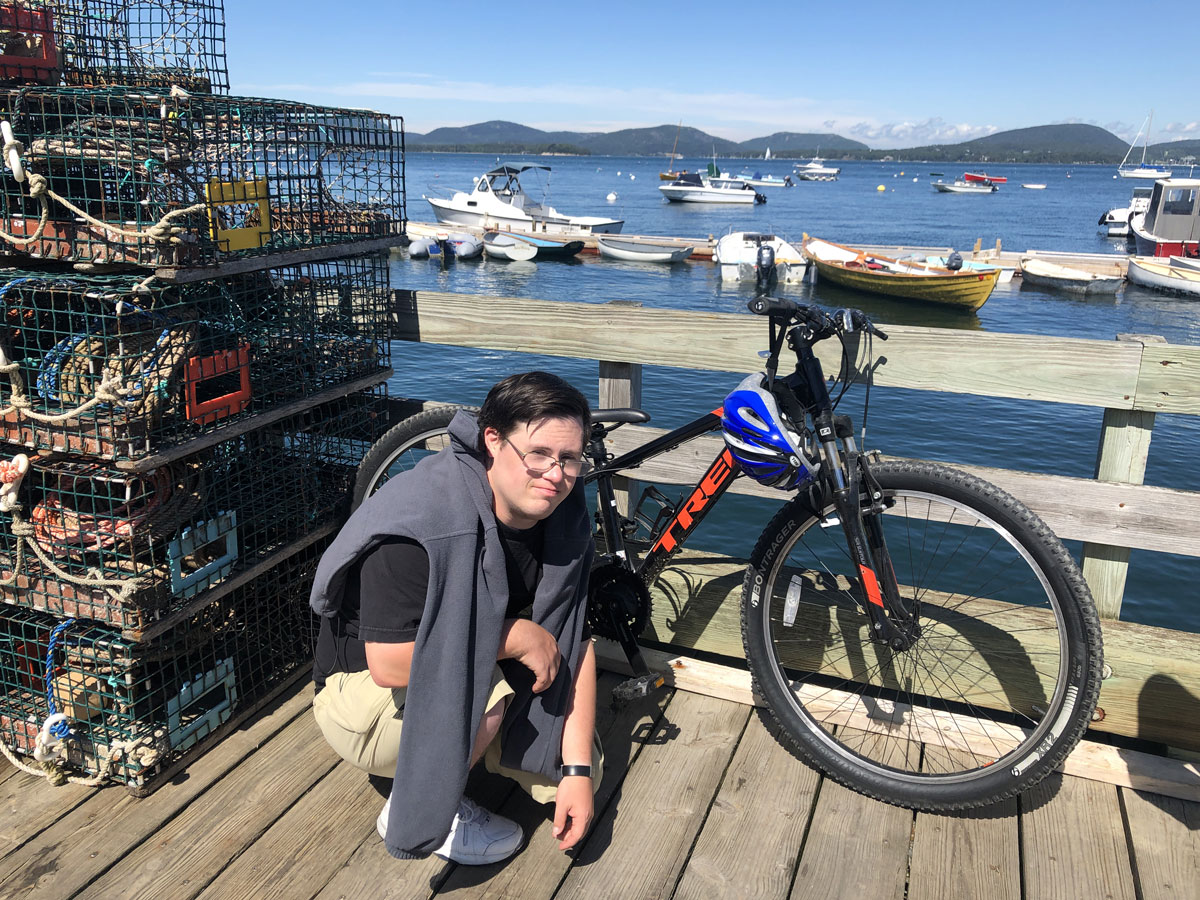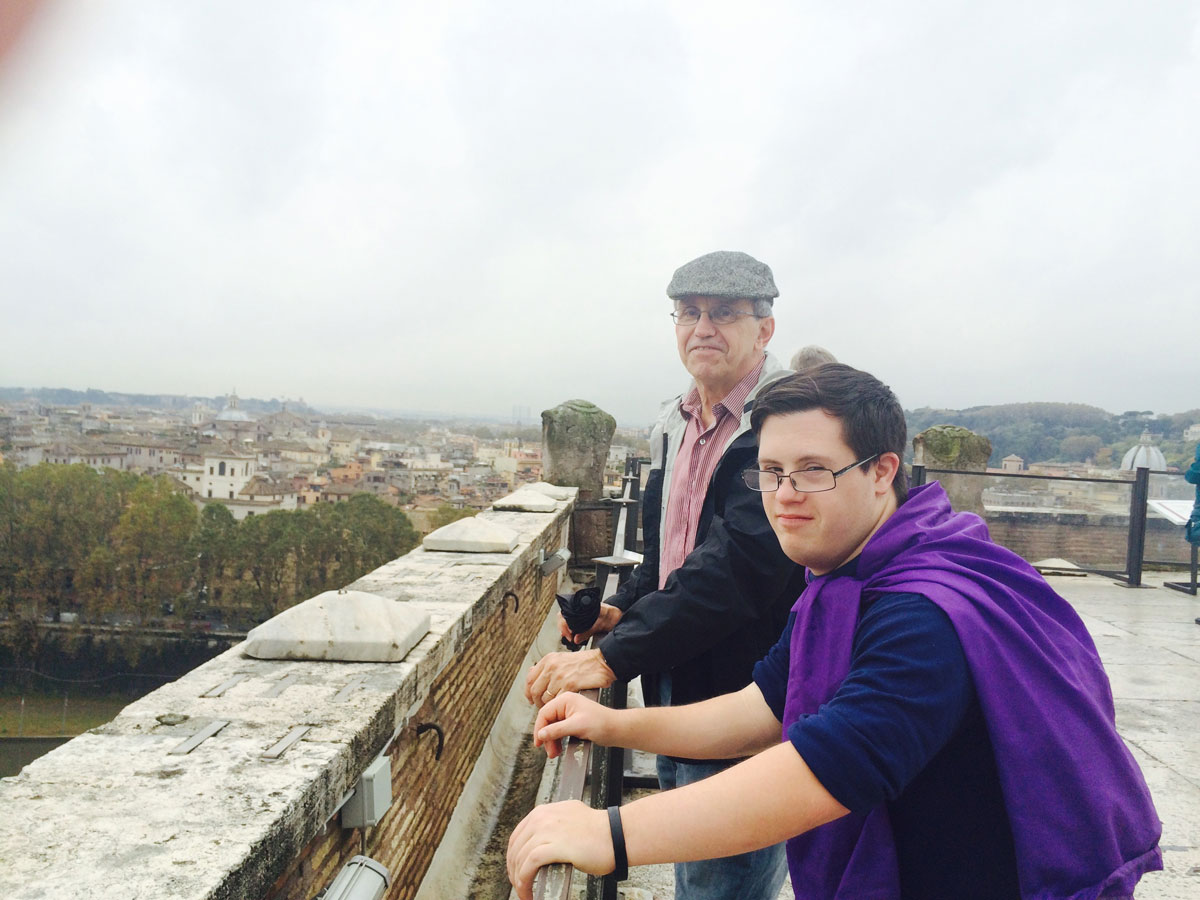From Parent to Parent: Raising a Child with an Intellectual Disability

Former Philadelphia Inquirer writer Ellen Gray reflects on her journey raising her son Patrick, who has an intellectual disability.
By Ellen Gray
When our younger son, Patrick, was born with Down syndrome, I wasn’t a big fan of the word “special.”
Special seemed to scream different, separate, less than—all the things I didn’t want for the lively, alert baby we would bring home.
Thirty-three years later, I know what so many other parents of people with so-called special needs know: that it isn’t their disabilities that make our children special. Instead, it’s what we discover about them as they grow and change, like all children, developing specific interests and personalities to become uniquely themselves.
Yes, Patrick is a member of what his father and I sometimes jokingly refer to as his tribe. A third 21st chromosome is a genetic anomaly that expresses differently in every person. But there are enough with physical similarities that meeting others with Down syndrome can sometimes feel like encountering my son’s extended family.

Ellen Gray’s husband and their son Patrick riding bikes // Photo courtesy of Ellen Gray

Which, honestly, is cool, especially when having Patrick along gives me an automatic in with strangers whose toddlers’ extreme cuteness brings me back to the days when I thought mine was the only beautiful kid with an extra chromosome.
But Trisomy 21, or Down syndrome, is not what makes Patrick special to us.
Down syndrome didn’t, for instance, give him an encyclopedic knowledge of black-and-white monster movies, leading to conversations like the one where he informed me that John Barrymore’s 1920 performance was the best of the Jekyll and Hydes. How many millennials have even heard of Drew Barrymore’s long-dead grandfather, much less know his work?
RELATED: Jackson’s Journey with Moebius Syndrome
Whether we get the news of our kids’ disabilities at the very beginning of their lives or after an extensive evaluation of delays and differences, I’m betting most parents could tell you stories about how their children color outside the lines of their diagnoses.
If only by being themselves.
Of course, they have special needs. Who doesn’t? In a perfect world, we might all get a bit of occupational or physical therapy. The things we learned from the teachers and therapists in Patrick’s KenCrest Early Intervention program would have been great to know when we were first-time parents, making it up with his older brother as we went along.

Patrick posing next to his bike // Photo courtesy of Ellen Gray

What would I have done differently if I’d known then what I know now?
I like to think I’d have gotten more sleep. Patrick slept through the night at three weeks. I stared at the ceiling, pondering his future.
I’d have worried less about those early IEP evaluations, where his development was expressed in terms of the age that supposedly typical infants and toddlers reached the same milestones. That he rolled over in one direction at six weeks but not the other until seven months, or didn’t walk until 21 months, turns out to be about as significant as my college GPA at this point.
Though I will never forget the great physical therapist who got down on the floor to demonstrate the difference between “mature” and “immature” crawling.


Patrick and his father // Photo courtesy of Ellen Gray
I’m grateful to those who’ve devoted their careers to helping people with disabilities realize their potential. But I’m equally grateful to the teachers who embraced inclusion, giving Patrick an education that was all the richer for being pitched above his perceived level. From the Montessori teachers who taught him to read to his extraordinary one-on-one aide, who stayed by his side from fourth grade through high school graduation, so many great people have helped him become the caring, responsible—and OK, slightly monster-obsessed—man he is today.
And if that’s what being special brings, I can live with it.
Ellen Gray is a former reporter, editor, and television critic for the Philadelphia Inquirer and Daily News. She and her husband, Al Heavens, live in South Jersey with their son Patrick. As parents of a son with an intellectual disability, they have been a part of the KenCrest family for many years. They continually support our organization’s mission to explore possibilities, mobilize resources, and empower dreams.
